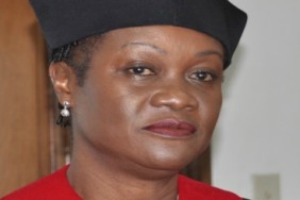ECO currency on the horizon
-As ECOWAS accelerates its integration agenda.

Monrovia, August 5, 2025: In a bold step toward deeper regional cooperation, the Economic Community of West African States (ECOWAS) has officially commenced its 2025 Mid-Year Joint Statutory Meetings, bringing together key financial institutions and policy stakeholders across the region.
The virtual meetings, which run from August 4 to 18, 2025, are expected to provide strategic direction on regional monetary integration, macroeconomic coordination, and preparations for the launch of the ECO, the region’s proposed single currency by 2027.
Convened under the auspices of the ECOWAS Commission, the meetings unite three of the region’s foremost monetary institutions, the West African Monetary Agency (WAMA), the West African Monetary Institute (WAMI), and the West African Institute for Financial and Economic Management (WAIFEM) in a coordinated effort to advance West Africa’s economic governance framework.
The sessions are attended by governors of central banks, ministers of finance, macroeconomic policy experts, and representatives of development partners, reflecting the high-level importance of the statutory meetings. Discussions are structured across a series of specialized technical and strategic sessions, each aimed at reviewing progress, addressing regional challenges, and aligning policy decisions with ECOWAS’s long-term integration objectives.
The 2025 meetings focus on critical aspects of West Africa’s regional economic architecture, including, the 2024 ECOWAS Macroeconomic Convergence Report , the implementation status of the ECOWAS Roadmap, especially regarding policy harmonization, fiscal discipline, and economic surveillance, trends in exchange rates, inflation, and financial market dynamics, Performance of the ECOWAS Solidarity and Stabilization Fund, designed to support macroeconomic stability across member states
Advancements in regional digital payment systems and financial sector reforms.
Preparatory steps toward the adoption of the ECO single currency, including monetary convergence criteria and legal frameworks.
The meetings come at a time of heightened global economic uncertainty, rising inflationary pressures, and volatile exchange rates, which have had direct impacts on the West African Monetary Zone (WAMZ) and other ECOWAS member states. These external pressures, combined with internal structural challenges, have prompted renewed urgency for stronger regional coordination.
According to experts, inflation and currency depreciation continue to undermine intra-regional trade, investment flows, and purchasing power in many ECOWAS countries, threatening the region’s broader economic convergence agenda.
Liberia is an active participant in the 2025 Mid-Year Meetings, represented by both the Ministry of Finance and Development Planning (MFDP) and the Central Bank of Liberia (CBL).
“These statutory meetings reaffirm our collective commitment to regional integration and economic transformation,” said Henry F. Saamoi, Executive Governor of the Central Bank of Liberia. “They provide a platform for evidence-based dialogue and coordinated action to address shared challenges and accelerate the realization of the ECO.”
The outcomes of the 2025 meetings are expected to influence key monetary and fiscal policy decisions across the region during the second half of the year, while laying the groundwork for stronger long-term strategies in support of the 2027 launch of the ECO.
The ECO is envisioned as a single regional currency that will facilitate trade, reduce exchange rate volatility, and promote monetary stability and economic growth across ECOWAS’s 15 member countries. Its successful implementation would mark a milestone achievement in Africa’s regional integration history.
As ECOWAS navigates the path toward monetary union, the 2025 Mid-Year Joint Statutory Meetings are more than just bureaucratic exercises; they are a strategic platform for realigning priorities, mobilizing political will, and reaffirming the region’s shared destiny.
With an eye on 2027, West Africa is taking deliberate, coordinated steps toward a unified, resilient, and prosperous economic bloc, one capable of withstanding external shocks while delivering tangible benefits to its people. -Edited by Othello B. Garblah.



















